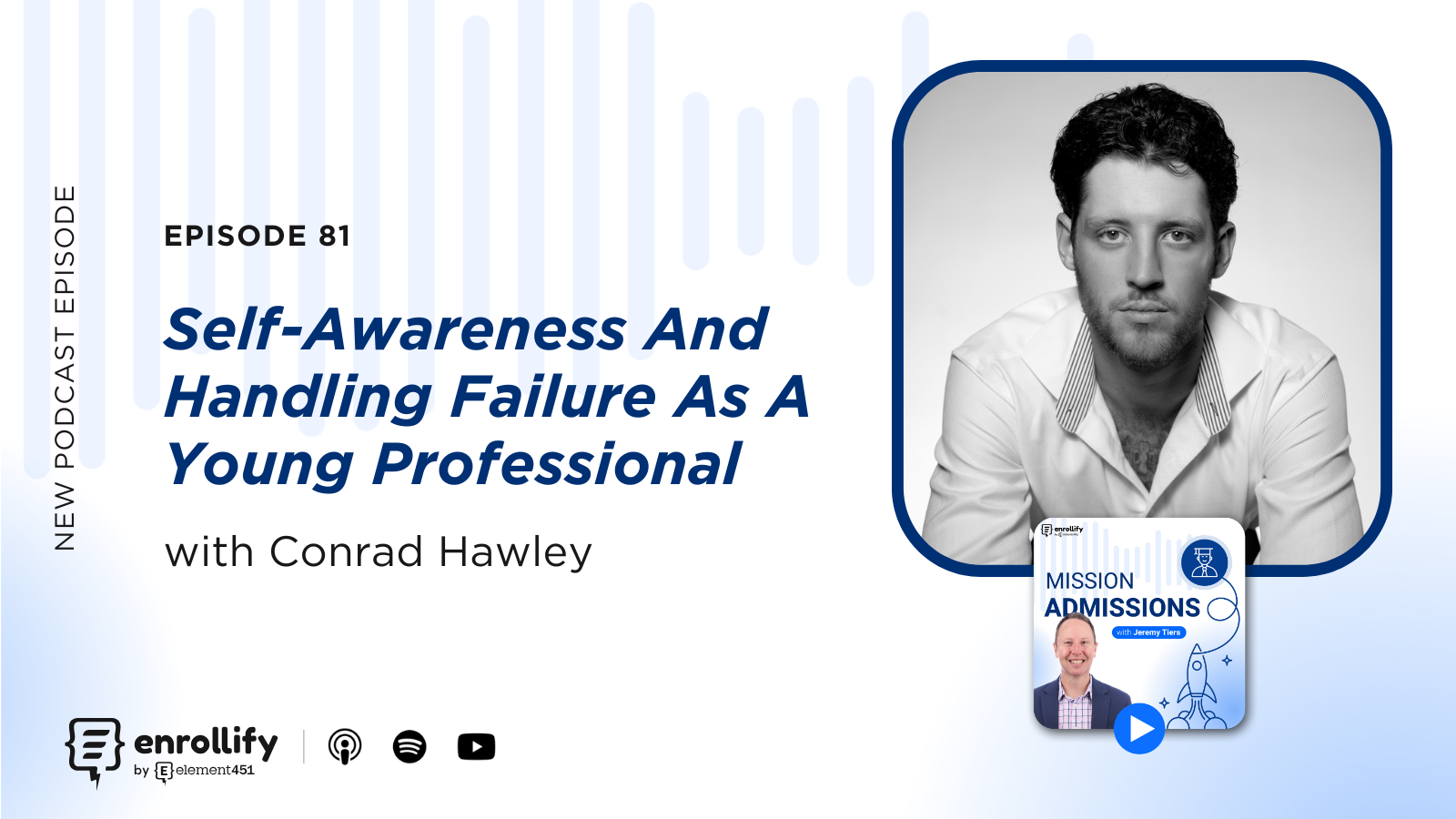About the Episode
The pandemic forced higher education teams to rethink how they approached collaboration, communication, and leadership. The future of work has changed forever, but managing in a remote-first world is among the top challenges for leaders. In this episode, Jaime talks with Joshua Charles, who has been leading remote and hybrid teams long before it became a necessity. Takeaways from this episode include:
- How to create environments that support employee well-being and high performance
- The best ways to measure the success of the team
- Ideas for fostering a thriving and positive work culture
- Tips for using collaboration tools to support a dispersed team
- Ideas for onboarding fully remote staff members
- Ways to “manage up” when making a case for hybrid or remote arrangements
What Does Remote-First Mean in Higher Ed?
For Joshua Charles, being remote-first doesn't mean your entire institution operates remotely, but rather that your team’s processes and workflows are designed to thrive regardless of physical location. This approach requires a focus on asynchronous communication, enabling employees to manage their workloads without being dependent on real-time interactions. The goal is to create systems where work can move forward seamlessly, whether or not everyone is in the same place or working at the same time.
Joshua began implementing remote-first practices as early as 2016, long before the pandemic forced many institutions to pivot to remote work. For his web strategy team, this meant introducing project management tools, minimizing the need for status meetings, and emphasizing collaboration through well-structured systems. By the time the pandemic hit, his team had already laid the groundwork for a smooth transition to remote work.
The New Realities of Employee Expectations
Joshua believes that higher education has struggled to keep pace with how employees view work post-pandemic. The trauma of recent years—including the pandemic, social justice movements, and personal challenges—has shifted how employees approach their jobs. Many now prioritize flexibility, autonomy, and work-life balance in ways they hadn’t before.
He emphasizes that higher ed leaders must move beyond 2019-era thinking about work. Staff have demonstrated they can perform exceptionally well remotely, so it’s critical for leaders to recognize these contributions and reimagine what the workplace should look like moving forward.
Listening to Employees
Joshua underscores the importance of listening to employees and incorporating their feedback into decision-making processes. Conversations about expectations, workflows, and flexibility can help ensure that staff feel heard and valued, reducing burnout and improving retention.
Leading High-Performing Teams
Joshua’s definition of a high-performing team is not about long hours or constant availability. Instead, it’s about creating an environment where work is meaningful, challenging, and reasonable.
Key Principles for High Performance:
- Focus on Outcomes: Define clear goals collaboratively and avoid micromanaging.
- Offer Autonomy with Support: Be available for guidance, but trust employees to execute their work.
- Normalize Fluctuations in Energy: Recognize that no one can operate at 100% every day and build a culture of empathy around that reality.
Joshua stresses that one-on-one meetings should prioritize the employee’s needs, giving them the space to share concerns or ask for support. Leaders should treat these interactions as sacred, showing up on time and prepared to actively listen.
Avoiding the Pitfalls of Micromanagement
Micromanagement stifles creativity, erodes trust, and creates toxic team dynamics. According to Joshua, it’s essential to empower employees by recognizing their expertise and providing them with the space to succeed.
Why Micromanagement is Detrimental:
- It limits an employee’s ability to contribute strategically.
- It sends the message that they’re only valued for a narrow set of tasks.
- It creates a toxic work environment that can lead to turnover.
Instead, leaders should adopt a coaching mindset, offering support and guidance while trusting their teams to deliver results.
Building Culture in a Remote Environment
Joshua firmly rejects the notion that building a strong team culture is impossible in a remote or hybrid setting. In fact, he believes remote environments provide a unique opportunity to create more inclusive and intentional cultures.
How to Build Remote Culture:
- Start with Conversations: Discuss team workflows, preferences for communication, and how team members want to be recognized or rewarded.
- Define Clear Expectations: Establish shared norms around work hours, off-hours communication, and project workflows.
- Prioritize Inclusivity: Ensure everyone has a voice in defining team culture, especially when it comes to creating a safe and supportive environment.
- Leverage the Right Tools: Use platforms like Basecamp for long-form communication and project management, and tools like TeamGantt for detailed project timelines.
For Joshua, team culture is about more than social activities—it’s about how team members relate to one another, work together, and feel supported in their roles.
Advice for Leaders
Joshua encourages leaders to embrace a mindset of continuous growth. Leadership doesn’t end with a promotion—it’s a journey of learning, reflection, and self-awareness.
Key Advice for Leaders:
- Keep Learning: Attend conferences, read books, and seek out new perspectives to expand your leadership skills.
- Be Vulnerable: Open, honest communication can build trust and strengthen relationships.
- Empower Your Team: Provide the tools, resources, and autonomy employees need to thrive.
- Reflect on Your Role: Ask yourself how you can better support your team and align their work with broader institutional goals.
About Confessions of a Higher Ed CMO
Confessions of a Higher Ed CMO is sponsored by our friends at Mindpower- a full-service marketing and branding firm celebrating nearly thirty years of needle-moving, thought-provoking, research-fueled creative and strategy. Mindpower is women-founded and owned, WBENC certified, nationally recognized, and serves the social sector – higher education, healthcare, non-profits, and more. The Mindpower team is made up of strategists, storytellers, and experience creators. From market research to brand campaigns to recruitment to fundraising, the agency exists to empower clients, amplify brands, and help institutions find a strategic way forward.Learn more about Mindpower here!
Confessions of a Higher Ed CMO is a part of the Enrollify Podcast Network. If you like this podcast, chances are you’ll like other Enrollify shows too!
Our podcast network is growing by the month and we’ve got a plethora of marketing, admissions, and higher ed technology shows that are jam packed with stories, ideas, and frameworks all designed to empower you to be a better higher ed professional. Our shows feature a selection of the industry’s best as your hosts. Learn from Mickey Baines, Zach Busekrus, Jeremy Tiers, Corynn Myers, Jaime Gleason and many more.
Learn more aboutThe Enrollify Podcast Network at podcasts.enrollify.org. Our shows help higher ed marketers and admissions professionals find their next big idea — come and find yours!















